Dave Alvin first received acclaim in L.A. roots rockers The Blasters, for which he was the primary songwriter, and whose revved up take on rhythm and blues won favor in the early-80’s punk rock scene and beyond. After a short stint with country-punkers The Knitters and punk-rockers X, Alvin launched his highly-regarded solo career which continues to this day. Alvin’s latest album, Eleven Eleven, came out in 2011.
The following interview was for a preview article for the show by Dave Alvin & The Guilty Ones on 9/19/12 at the Maverick Saloon in Santa Ynez, as part of the tenth anniversary celebration of the Tales from the Tavern series. The interview was done by phone on 8/30/12. (Brian Blouser photo)
Jeff Moehlis: What can we look forward to at your upcoming concert at the Maverick Saloon?
Dave Alvin: The greatest live show you’ve ever seen [laughs]. Kind of a little bit of everything – old songs, new songs, in-between songs. It’ll be a little loud, and it’ll be a little quiet at times. It’s a rock ‘n’ roll, blues, folky kind of thing.
JM: I know you’ve performed as part of Tales from the Tavern several times before, and this is now their tenth anniversary. As an artist, what is special to you about Tales from the Tavern?
DA: Well, part of it is Ron Colone and his sister Carole Ann. They’re great people, and they’ve always made me feel very much at home and welcome there. I know that that’s true for other artists that I’ve talked to that’ve played for that. You’re just at ease there, more than at some other places.
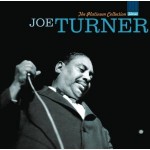
JM: I think it’s cool that when you were starting out as a musician, you picked up stuff from blues masters like Big Joe Turner and T-Bone Walker. Is there anything that you learned from those guys that has stuck with you all these years?
DA: Oh sure, yeah. The most important thing really is to be yourself. At least, that’s what I took away from it.
When I was a kid, thirteen or fourteen years old, my older brother Phil and I started sneaking into bars to see these guys. There were a lot of guys that lived locally in Southern California. Once we found out that, say, Big Joe Turner lived in L.A. and played in bars, sang in bars, it was like, “Let’s go find these bars!” [laughs] What I took away from it was that the greats, in blues and R & B and all that, the real greats were always themselves. That was their deal.
As much as would’ve like to have been Lightnin’ Hopkins or Big Joe Turner, and in some ways I still want to be them, the reality is that I come from a different experience, a different everything. But their music taught me, besides certain musical things, their music taught me to try to express my view of my world, the same way they did theirs. You know, Big Joe Turner was born in a small town outside of Kansas City, and then he lived in Kansas City and was the singing bartender back in the early- to mid-30’s. He lived this whole other life than I could ever live. The one way of showing my respect for that is to not to pretend to be them, if that makes any sense.
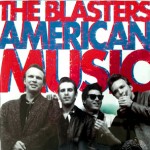
JM: I saw you perform last October at the Lobero Theatre, the scene of the crime if you will. There’s the story of The Blasters playing there and the crowd getting out of control. Can you give a quick synopsis of what happened there?
DA: Long story short, they didn’t have enough security. I think maybe they had one security guy there, and he kind of disappeared when things started getting out of hand. Our road crew had to get involved in keeping revelers off the stage. It was a time and place thing.
But the thing about The Blasters was that we were just playing our version of old Rhythm & Blues, all hopped up and fast, but that’s all there was. It struck a chord that night, and several other nights in several other cities we were banned from [laughs]. It wasn’t like we were calling for people to burn down the city, you know. We were just playing our songs. Our attitude was always that when these things happened we didn’t stop playing, because we weren’t going to let that stop us from playing. Our job as musicians is to play. And your job as a promoter, this that and the other, is to make sure these things don’t happen. Whether that’s the right attitude or not, that was our attitude.
JM: With The Blasters, did you feel that you were part of the punk rock scene, or did you feel outside of it? What do you feel your place was in the L.A. music scene at the time?
DA: Well, the L.A. music scene was a complicated thing. If you’re talking L.A. punk rock, or Orange County punk rock… Or the L.A. music scene which was everything from The Go-Gos to Black Flag… Sure, we were part of that. I wouldn’t call The Blasters a punk band. I think in music writing terms you could say a punk-informed band [laughs]. In a two month period way back when, in the early days of our career, we had done shows opening for Queen, The Go-Go’s, Asleep at the Wheel, and The Cramps. Our attitude was that we did what we did.
There was one particular gig I remember very well, which was a New Year’s gig around ’83, which was us and Black Flag and Fear and Saccharine Trust, and one or two other bands at the Olympic Auditorium downtown. That was a bloodbath. We just went out onstage and did what we did. It was fine, everything worked. But were we part of the hardcore scene? No.
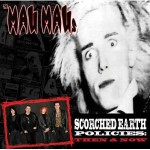
JM: This is a little off-topic, but I recently learned about a band from that scene called The Mau Maus. Did you ever play with those guys?
DA: Never played with them, but my ex-fiance from back then, they used to rehearse underneath her house, in the garage underneath her duplex. So yeah, I knew a couple of those guys. “Hey man, who are you doing?” They’d come up from their rehearsal. It was that kind of scene in those days where everybody kind of knew each other, you know.
JM: I’m a big fan of X, who you ended up playing with, first with The Knitters and then as a member of X. How did that all come about?
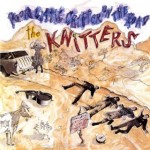
DA: The Knitters kind of came about as a reaction… Both X and The Blasters would get a lot of requests to play benefits. There were maybe certain people in both bands that didn’t want to play benefits, and so then The Knitters became a way of John and Exene and me agreeing to play benefits. People would call us and say, “Hey, we’re having a benefit for this, that, or the other. Does X want to do it?” Then they’d say, “No, but The Knitters will.” Then I’d get a call and they’d say, “Do The Blasters want to do it?” I’d say, “No, but The Knitters will.” And so it kind of grew out of that.
Then we started doing actual real gigs. So when Billy [Zoom] left X, it was just a natural extension, because we were all very close friends at the time, John, Exene, and I. It was a natural thing, it felt right. “OK, we need a guitar player. Get Alvin.” And at that time I was kind of fed up… Both bands, X and The Blasters, had certain rules. We were both kind of fed up with holding true and fast to those rules at the time. So X shows after I joined started becoming like really loud Knitters’ shows [laughs].
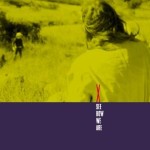
JM: When you started your solo career, what kind of goals did you have in mind, and do you think you were successful with that?
DA: Well, the goals I had in mind… I didn’t really have any, except that I wanted to be a better songwriter, and continue being a songwriter. It was difficult in The Blasters because I wrote the songs for my brother to sing. And you run out of things that you share after some point. There’s less and less. You know, “We both like this, so I wrote a song about this. Now you like that, and I hate that, so I’m not gonna write a song about that. I like this, and you hate this, and I feel like…” You know what I mean?
Also, when you’re in a band situation you can only play songs that a band wants to play. You bring in a waltz or a polka, and if it’s a band like The Blasters they’re just going to look at you like, “What, are you nuts?” So I just wanted to kind of have the songs dictate my life, as opposed to a band dictate my life.
Over the years, more and more, when I go to the studio, whether it’s recording acoustically or electrically, I let the song decide what the song’s gonna be. The songs will tell you. They’ll say, “I’m an acoustic song”, or “I’m an electric song”, or “I’m either one, what’s your mood today?” I tend to follow that.
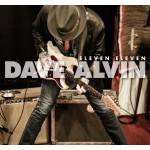
JM: I know that you and your brother had tension back in the day. But he did play on your latest album. How are you guys getting along these days?
DA: Well, we’re getting along great. We actually haven’t been this close in decades. Over the past year he’s had two life-threatening health issues, and that’s brought us even closer. Yeah, it’s great. For years there was a lot of… anger’s not the word, but misunderstandings [laughs]. And there still are. But brothers are brothers. Brothers are gonna fight, brothers are gonna quibble, and brothers are gonna love each other. That’s just the way it is.
JM: How would you compare the experiences of performing live versus recording in the studio?
DA: It depends on what kind of recording you’re doing. But I live to play live. That’s my favorite thing to do. That’s where the transcendental communication happens between the artist and the audience. And when you’re playing oddball music like I play, the fact that my weird little songs touch people and they give that back to me, they show me that songs that I think are weirdly esoteric and whatever mean something to them, is a big addiction. If I could get two nights off a week to eat well and do laundry, yeah, I could spend five nights a week on the road for the rest of my life.
JM: What advice would you give to an aspiring musician?
DA: Quit. [laughs]
JM: But you just told me how great it is to be on the road…
DA: My answer was partially humorous, and partially serious out of a business side of things. The music industry has changed so much. It was always tough, and it’s only gotten tougher. I’m a very lucky guy. I’m a very fortunate exception to the rules, in that so many of my peers and friends of mine can no longer tour. They won’t make records. The fact that after thirty years I’m still making records and touring never ceases to astound me. Not to sound religious, but I’m very blessed. I’m very lucky because of that. And partially that’s because of who my heroes were growing up, the guys we were talking about earlier, Big Joe and T-Bone and Lightnin’ and whoever, who didn’t quit. It wasn’t even a lifestyle, it was just life. You just played music.
Which brings me to my actual answer to your question. Whatever you’re doing musically, do it out of love. As cornball as that sounds, it’s true. That’s the only thing that will get you through playing on a Sunday night in Sioux Falls, South Dakota in a snowstorm. That love of music is the only thing that gets you through. Beer will help. A pretty girl in the crowd will help. But it’s really love.
I love playing music, this is what I do. I’m playing music, I’m lucky to be playing music. If you do it for love, that’ll inform the choices you make, whether you’re going to make that change, you know, stop playing Chicago blues and start playing Euro-techno music [laughs]. Well, I love playing Chicago blues – I think I’ll stick to that. You may find out that you have a longer career following your heart’s desire than the desires of the marketplace.
JM: You might be interested to know that John Doe essentially said the same thing. When I first asked him he said “Don’t do it”, but then like you he said that if you love it, you’ll do it.
DA: It’s always been hard. It’s always been a hard life, and it’s always been a hard way to earn a living. If I had kids, unless they showed massive devotion to it, I would try to get them into some sort of, I don’t know, school [laughs]. But the thing is, most people like music and they buy a guitar, or they buy a saxophone, or a xylophone or whatever. And they play it a little, and then maybe they have a band in high school or whatever. Then there’s those of us, that I don’t have a choice. I was kind of mentored to do this. My brother and I were mentored by older musicians, and that’s why we do what we do. It’s our calling. And that’s a different thing. If I felt that my kids, if I had kids, felt the calling, I would say “Go for it”, unequivocally. I would say, “Look out for this, look out for that, get a good lawyer, buy a van”, you know all that practical stuff. But it’s really, do you have the love for it?
JM: What are your plans, musical or otherwise, for the near future? Any new albums in the works?
DA: There’s always albums in my brain. But my plan is to play the next gig. That’s the extent of my career planning, always has been. Songs will come when they come, and you write them down and you record them. But, again like I said earlier, playing live, that’s my deal.
JM: Do you want to set the record straight on anything about The Blasters or your solo career?
DA: No. [laughs] I got nothing. I mean, what can you say? I made some mistakes, and I did some good things.
JM: Where am I reaching you at?
DA: At home in Southern California.

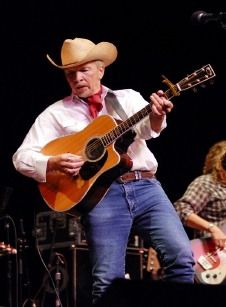
Discussion
No comments for “Interview: Dave Alvin”